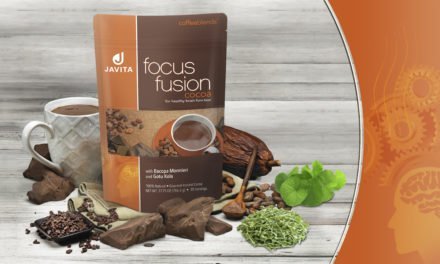Green tea is considered one of the healthiest drinks on the planet.
Besides its ability to improve circulation, it can help stabilize blood sugar and combat underlying causes of cancer.
But it’s not just that green tea is healthy—it can reduce your risk of dying!
A decade of meticulous research evaluated hundreds of thousands of people in relationship to their dietary habits. The results showed that the higher the consumption of green tea and its polyphenol constituents, the lower the overall risk of dying from any cause. This longevity benefit is especially pronounced in older populations.
Green tea combats many underlying processes that contribute to premature aging and disease.
Here, we’ll evaluate compelling studies showing that green tea reduces all-cause mortality. Then we’ll look at how green tea or its components help reduce the impact of specific health problems that contribute to premature death.
For many years, green tea and its compounds have demonstrated compelling benefits in basic science and animal studies. But until about a decade ago, there were conflicting results about those health benefits in people.
Now, a handful of epidemiological cohort studies has made the human health benefits much clearer.
In these types of studies, researchers follow a large group of people over a long period of time, recording both the health outcome of interest (death from all causes) and ingestion of substances (green tea consumption) that might influence the outcomes. Once the data have been collected, they are analyzed in search of statistically significant associations between ingested substance and the outcome.
By early 2017, several large cohort studies and meta-analyses of smaller cohort studies had been completed examining the association between green tea consumption and death from all causes. While the results varied somewhat by design and by the populations being studied, they all had one thing in common: They found significant reductions in all-cause mortality among habitual green tea users, compared with nonusers or low-level consumers.
The largest individual studies involved populations of 40,000 to more than 160,000 subjects, and they all showed significant all-cause mortality risk reductions of 11%-18% in those drinking the largest daily amounts of green tea (five or more cups), compared to non-green tea drinkers. Those studies also found that the more tea a person drinks, the greater the risk reduction.
A smaller but still sizable study of 14,001 older adults found a still more impressive overall risk reduction of 58% in the highest-consumption group—a figure that rose to 68% in women only.
Finally, a meta-analysis pooling the results of 18 individual cohort studies found a 20% reduction in all-cause mortality risk among the highest vs. the lowest category of green tea consumption.11 That study also broke down the data to show that for each one-cup increment of green tea consumed daily, the risk of all-cause mortality fell by 4%, a figure that supports the overall reductions in the preceding studies.
Together, these studies vividly illustrate the powerful ability of green tea consumption to mitigate the risk of dying from any cause.
Green Tea Fights Age-Related Diseases
How is green tea consumption capable of producing such drops in the risk of death across the board? The reason is because green tea possesses multi-targeted properties that combat five fundamental processesthat underlie degenerative disease: oxidative stress, sugar-induced damage (glycation), inflammation, mitochondrial dysfunction, and disruptions to the intestinal microbiome.
As a result, green tea consumption has been found to have a beneficial impact on the chronic conditions responsible for killing the majority of older adults, including cardiovascular and neurodegenerative diseases, diabetes/obesity, and cancer, as well as some less-obvious factors like dental problems. Let’s look at each individually.
Cardiovascular Disease
Cardiovascular disease remains the leading killer of older Americans and is therefore a major contributor to all-cause mortality. Green tea consumption is widely recognized as a means of lowering cardiovascular disease risk.
Each of the studies mentioned earlier that showed significant reductions in all-cause mortality risk also showed significant decreases in the risk of dying from cardiovascular disease. Specifically, those who consumed the largest amounts of green tea reduced their risk of dying from cardiovascular disease by 14% to as much as 76% (and up to 82% for women).
These benefits are largely driven by green tea’s high content of catechins (a type of polyphenol), the most abundant of which is epigallocatechin gallate (EGCG).
Higher levels of green tea catechins are associated with lower levels of triglycerides and LDL cholesterol.22EGCG has potent protective effects against the oxidation of LDL cholesterol. This is important because oxidized LDL cholesterol is a major risk factor for, and early contributor to, atherosclerosis and plaque formation that blocks arterial blood flow.
In vitro studies demonstrate that green tea’s effects can protect against oxidized LDL-induced endothelial dysfunction (an early finding in atherosclerosis) by modulating the production of two forms of nitric oxide that regulate signaling changes in blood pressure and flow.
Diabesity
Diabesity (the combination of type II diabetes and obesity) is another major contributor to premature death because it sets up older adults for metabolic, cardiac, neurologic, and malignant catastrophes by feeding inflammatory changes throughout the body.
Green tea—and especially the EGCG contained in green tea extracts—powerfully fights many of the causes and consequences of diabesity.
A human study revealed that taking 90 mg/day of EGCG increases the body’s ability to burn fat for energy, which results in increased energy expenditure. These actions not only combat the accumulation of fat, but also help prevent inflammation caused by fat cells. An animal study showed that EGCG can reduce body weight and shrink fat mass, in large part by stimulating the burning of fat for energy.
Other favorable effects of green tea extracts and EGCG include reductions in fat uptake and liver fat storage, reductions in markers of fat-induced chemical stress, reductions in fat-induced insulin production, and reductions in inflammation produced by fat cells.26 As an added benefit, green tea extract prevents fat absorption by inhibiting the pancreatic enzymes required for its digestion in the intestine.
WHAT YOU NEED TO KNOW
A recent barrage of studies has confirmed that people who consume green tea are significantly less likely to die from all causes put together.
The risk of dying may be reduced by as little as 5% and as much as 76%, depending on study design and population, but the results are consistent across multiple studies.
Green tea and its extracts exert this remarkable anti-mortality effect by reducing the risk of developing fatal chronic diseases, including cardiovascular and neurodegenerative diseases, obesity and diabetes, and cancer, as well as other conditions that predispose us to an early death, like tooth and gum disease.
Research demonstrates that the green tea components, EGCG and others, exert these widespread effects because of very specific and focused impact on a small handful of biochemical and cellular processes.
Green tea extracts should be considered an essential part of an overall strategy to extend life and evade disease.
Neurodegenerative Diseases
Neurodegenerative diseases like Alzheimer’s and Parkinson’s contribute to early death, and they represent a sizable slice of the overall mortality rate.
Green tea extracts and EGCG fight the causes and progression of neurodegenerative diseases in multiple ways. For example, EGCG may prevent Alzheimer’s disease by reducing production of the toxic protein called beta-amyloid, as well as the resulting inflammation, which otherwise destroys brain cells.
Not only does this increase the survival of brain cells, it also stimulates new brain cell production, especially in the memory-storage hippocampal area of the brain. These actions have resulted in improved behaviors in an animal model of Alzheimer’s.
Cancer
Cancer is the second-leading cause of death in the US, which makes reducing cancer risk an important way to reduce all-cause mortality.
Green tea polyphenols have been found to suppress cancer development and its aggressiveness in in vitro studies of many different cancers, including prostate, melanoma, breast, liver, lung, brain, and bladder malignancies.
Epidemiological studies show that people who drink five or more cups of green tea per day have a 38% lower risk of developing liver cancer, compared with nondrinkers.38 In a group of men with prostate cancer, supplementation with green tea extract reduced markers of oxidative stress and increased natural protective mechanisms.
Studies of breast cancer in relation to green tea consumption are particularly compelling, and deserve specific mention.
Green tea appears to have multiple effects on breast cancers, both before and after malignancies are discovered.
Studies show, for instance, that among women diagnosed with breast cancer, those with higher green tea consumption are less likely to have tumors spread to regional lymph nodes, or to metastasize, compared with women who consume little or none of the beverage.
And green tea consumption correlates significantly with diminished recurrence rates of early breast cancers: consumption of three or more cups/day reduces recurrence risk by 31%, and among those with the very earliest (stage I) tumors, significant risk reduction of 57% has been observed.
Even in studies not restricted to early-stage cancers, green tea consumption has shown a dose-related impact.
One large study showed that, compared with non-tea drinkers, those consuming, yearly, 250 or more grams of green tea leaves had risk reductions of 32% to 41% for breast cancer occurrence, figures generally supported in a large meta-analysis study as well.
Lab studies shed additional light on green tea’s role in breast cancer prevention.
In culture experiments, EGCG was shown to inhibit rare but deadly inflammatory stem-like breast cancer cells, which contribute to extremely poor prognoses when found.
And in living animals, green tea supplementation inhibited metastatic spread, and reduced the ability of metastases to grow in bones of mice with transplanted human breast tumor tissue.
Finally, EGCG and green tea extracts are showing signs of effectiveness in the most challenging of breast cancer types, those lacking receptors for estrogen, in which relatively safe and simple treatment with estrogen-fighting drugs is not effective.
Green tea extracts and EGCG act by a wide range of mechanisms to achieve these effects, including:
- Inhibiting the out-of-control cell replication cycle typical of cancers
- Inducing early cell death (apoptosis) in malignant cells
- Suppressing the formation of new blood vessels to nourish rapidly-growing tumor masses, resulting in their destruction
- Reducing production of the “protein-melting” enzymes tumors use to invade between cells and spread their malignant tissue
- Inhibiting a host of proinflammatory signaling systems, including nuclear factor kappa B, and cyclooxygenase (COX)
Oral Health
Oral health, tooth decay, and gum disease are rarely thought of as being associated with premature death, but that’s a dangerous misconception. The alarming truth is that people with gum disease can be anywhere from 34%-72% more likely to die of cardiovascular disease and other complications, compared to those in good oral health.
Tooth loss has also been found to increase the risk of dying by up to 36% in older adults, while preventing tooth decay and loss can reduce that risk by 46%.
Green tea extracts have been found to help slow or prevent tooth decay and loss. Research shows that green tea extract can reduce wear and roughness caused by chemical erosion on tooth material.
SUMMARY
Studies published over the past decade are substantiating that green tea and its compounds can reduce our risk of dying from all causes.
Significant green tea-associated reductions in all-cause mortality have been reported in a long series of studies in multiple populations, with effects as modest as a 5% reduction, up to a 76% reduction in the risk of dying.
These human longevity benefits correlate with the ability of green tea to protect cells throughout our aging bodies against degenerative alterations.
In response to higher intake of green tea and its extracts, studies reveal a reduced risk of developing cancer, diabetes, and vascular, neurodegenerative disorders.
Polyphenol extracts from green tea represent a low-cost addition to an overall strategy to prevent disease and extend life.



















































